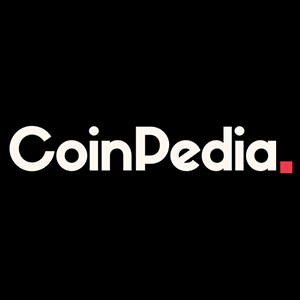Analysts at Bernstein have predicted an upcoming wave of equity tokenization driven by regulatory support
3 min read
Analysts at research and brokerage firm Bernstein have expressed optimism about the future of equity tokenization despite the controversy between Robinhood and OpenAI. The analysts predicted that the current regulatory tailwinds pushing the crypto industry forward would usher in an “equity tokenization wave,” and they back Robinhood to benefit. Robinhood wants to get more companies to join the tokenization trend Robinhood’s CEO Vlad Tenev was present at a promotional event in Cannes on June 30, where he unveiled the firm’s tokenized stocks product, offering EU customers over 200 public U.S. equities and stakes in private companies like OpenAI and SpaceX minted as tokens on the Arbitrum chain. The development came alongside several other crypto product launches like perpetual trading and staking, as well as its own Ethereum Layer 2 network. According to Tenev, the OpenAI and SpaceX tokens are “a seed for something much bigger,” with the ultimate aim being to get more private companies to join the tokenization trend. The tokens were framed as derivatives rather than as direct equity and are expected to provide indirect exposure via a Special Purpose Vehicle (SPV). Firms like OpenAI and SpaceX already have private market liquidity, but there is still strong demand for tokenizing less liquid private assets, according to Bernstein analysts led by Gautam Chhugani. According to Chhugani, the primary objective of the product launch, which was to create enough headlines and get enough marketing on the idea of tokenization, has been achieved. Now, Robinhood looks toward a future in which it will keep iterating on the product, as it works toward building a marketplace for listed and unlisted equities not just around the world but also in the U.S. when the regulatory framework is ready. OpenAI did not immediately warm to Robinhood’s launch While the move was touted as innovative by Robinhood, OpenAI has expressed resistance. “These ‘OpenAI tokens’ are not OpenAI equity. We did not partner with Robinhood, were not involved in this, and do not endorse it. Any transfer of OpenAI equity requires our approval—we did not approve any transfer,” OpenAI shared on its official X page. Bernstein analysts explained OpenAI’s position to clients in a note shared on Monday, clarifying that “OpenAI said they did not consent and OpenAI equity token is not equity without the equity rights and company consent.” The note further explained that the stocks are private, unlisted, and not redeemable/transferable, unless Robinhood enables this functionality, which would be completely at its discretion. In response to OpenAI’s condemnation, Robinhood spokesperson Rouky Diallo tagged the OpenAI tokens part of a “limited” giveaway to offer retail investors indirect exposure “through Robinhood’s ownership stake in a special purpose vehicle (SPV).” Elon Musk did not miss the opportunity to attack OpenAI SpaceX reacted differently to the news. Whereas OpenAI chose to issue a definitive statement rejecting Robinhood’s “OpenAI tokens” as unauthorized, SpaceX has been quiet. Your “equity” is fake — Elon Musk (@elonmusk) July 2, 2025 However, the company’s CEO, Elon Musk, indirectly got involved with the controversy when he replied to OpenAI’s clarification post with a scathing remark that claimed “its ‘equity’ is fake.” The comment reflects Musk’s ongoing criticism of the company since it first attempted to adopt a for-profit model. Despite his silence, there are reports that indicate SpaceX also tightly controls its cap table and limits share sales to selected investors, which suggests that a tokenization of its equity without its explicit consent would likely not be recognized. It is well known that private companies, like SpaceX, resist anything that could influence how their equity is valued. In fact, not long ago, humanoid robotics startup Figure AI was forced to send cease-and-desist letters to two brokers running secondary markets that were marketing its stock. The circumstances differ but there is little doubt most startups work hard to ensure people don’t believe that they’ve authorized share sales if they haven’t. KEY Difference Wire : the secret tool crypto projects use to get guaranteed media coverage

Source: Cryptopolitan



